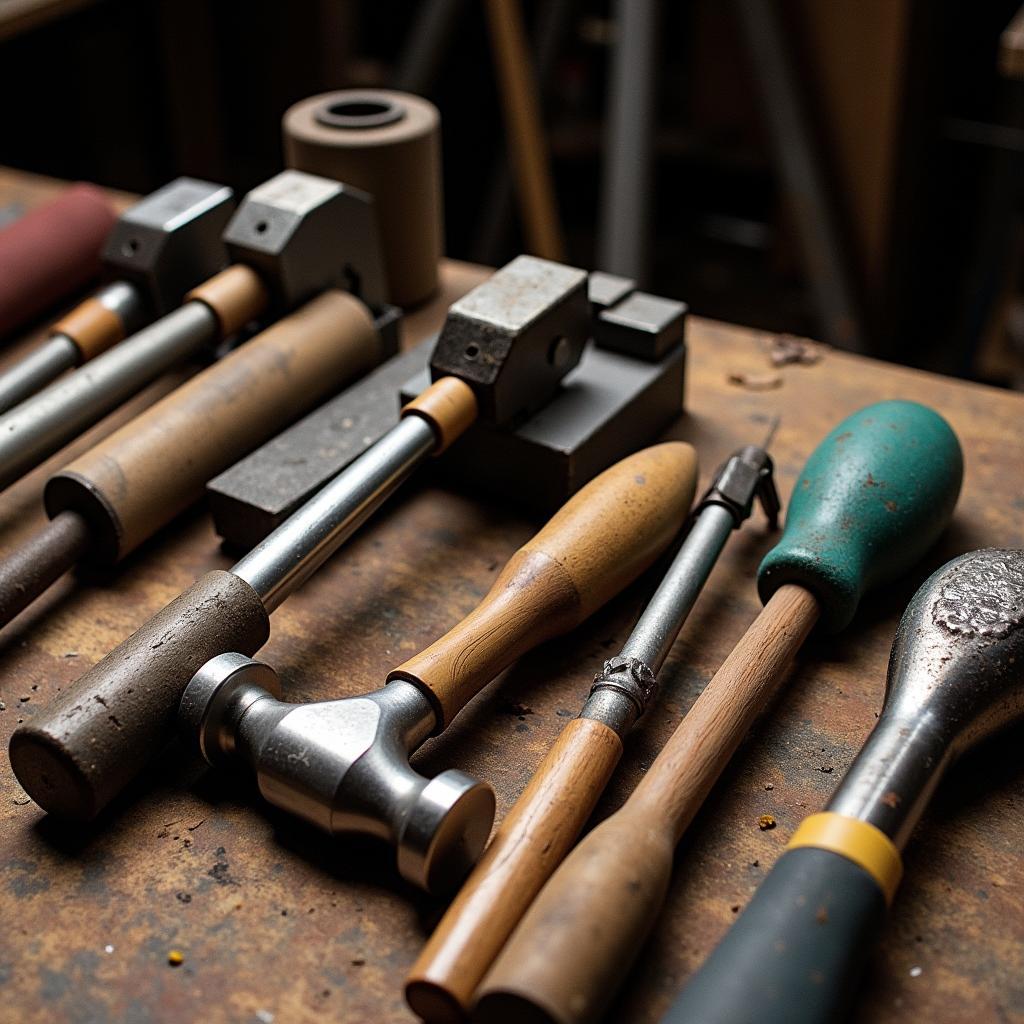Restoring a classic car is more than a hobby; it’s a passionate journey back in time. And whether you’re reviving a rusty relic or perfecting a prized possession, having the right tools for restoring classic cars is paramount. This guide dives deep into the essential equipment you’ll need for every stage of your restoration project.
Bodywork Bliss: Shaping Metal and Removing Rust
Bodywork often forms the foundation of a classic car restoration. Rust removal is a critical first step. Wire brushes, sandblasters, and chemical removers are your allies in this fight against corrosion. car dismantling tools can be very useful in this step. Moving on to shaping the metal, a collection of hammers, dollies, and body files are essential for smoothing out dents and imperfections. A quality set of sanding blocks, ranging from coarse to fine grit, will prepare the surface for priming and painting. Remember, patience is key in this phase.
Welding Wonders: Joining Metal with Precision
Welding is often unavoidable in classic car restoration. Whether patching rust holes or fabricating new panels, a reliable MIG or TIG welder is a must-have. Investing in a good quality welding helmet and gloves is equally important for your safety. Practice your welding technique before tackling critical areas of your classic car’s body.
Mechanical Marvels: Bringing the Engine Back to Life
Under the hood lies the heart of your classic car – the engine. A comprehensive set of wrenches and sockets is crucial for dismantling and reassembling the engine components. Specialty tools like a timing light, compression tester, and frost classic car tools are invaluable for diagnosing and tuning the engine. Don’t forget about essential tools or working equipment for the career, such as engine stands and hoists, which make working on the engine much easier and safer.
Electrical Enigma: Troubleshooting Wiring and Components
Electrical issues can be a real headache in classic car restorations. A multimeter is essential for diagnosing faulty wiring and components. Wiring diagrams specific to your car model are a lifeline when navigating the often-complex electrical systems of older vehicles. A soldering iron and heat shrink tubing are must-haves for repairing and replacing wiring.
Painting Perfection: Achieving a Flawless Finish
A stunning paint job is the crowning glory of any classic car restoration. Investing in a good quality spray gun, compressor, and polishing tools for cars will help you achieve a professional-looking finish. Remember, proper preparation is crucial. Thoroughly sanding and priming the bodywork before painting is essential for a smooth and durable finish. A car spec check tool can also help ensure the correct paint is used.
Conclusion: Tools for a Timeless Treasure
Restoring a classic car is a rewarding experience. With the right tools for restoring classic cars, you can transform a rusty relic into a gleaming masterpiece. Remember, quality tools are an investment in your project’s success.
FAQ:
- What are the most important tools for rust removal?
- What type of welder is best for classic car restoration?
- What tools do I need to rebuild an engine?
- How can I diagnose electrical problems in my classic car?
- What equipment is necessary for a professional paint job?
- What safety precautions should I take when restoring a classic car?
- Where can I find parts for my classic car?
Need further assistance with your classic car restoration project? Don’t hesitate to contact us via WhatsApp: +1(641)206-8880, Email: [email protected] or visit us at 910 Cedar Lane, Chicago, IL 60605, USA. Our 24/7 customer support team is always ready to help.


